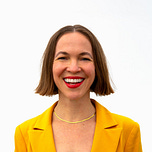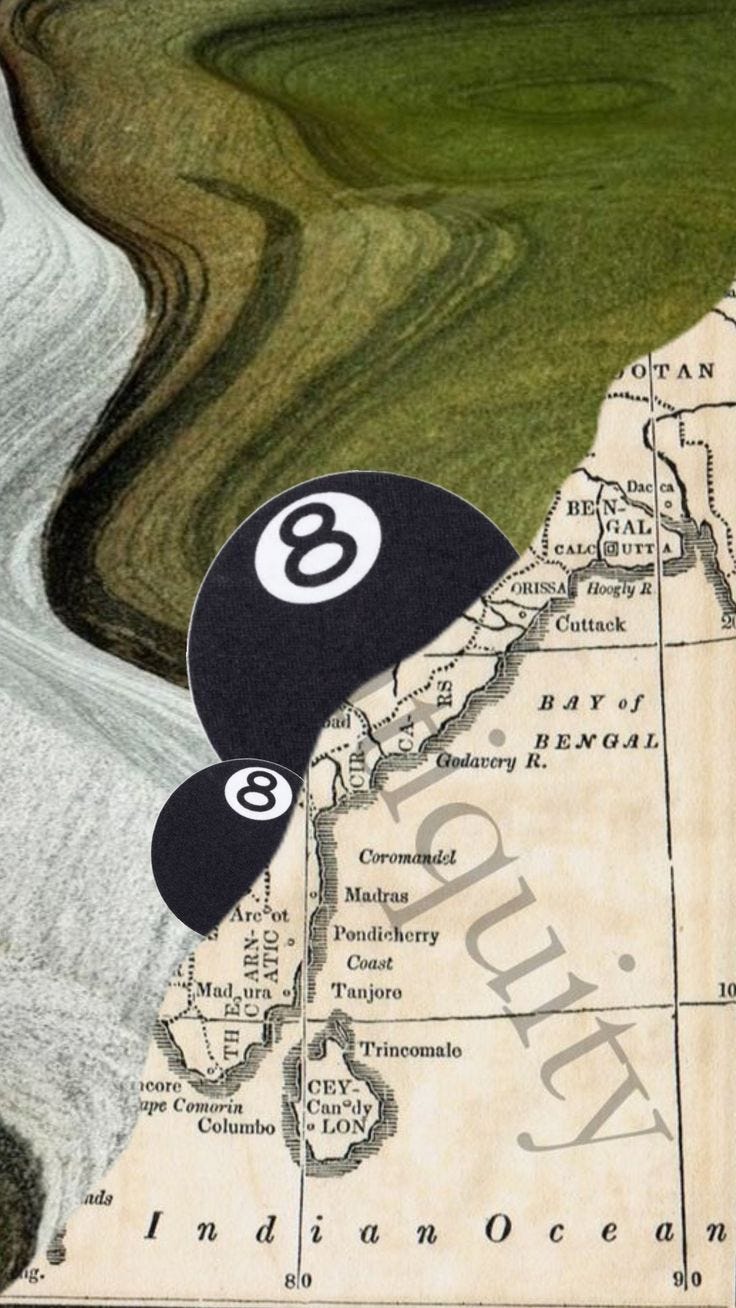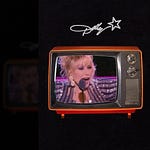Recently my friend Shannon shared a mantra she has repeated for the last fifteen years, one she first saw on a hand-painted sign in Maui: you don’t have to push the river.
And yet there I was, waist-deep in the current, shoving it in every exhausting and fruitless direction.
That river being: social media.
In recent weeks I had joined my voice to the swelling outcry online, speaking more pointedly than I have in the past. I was responding to the horrors that continue to pound Gaza, posting my dissent against the systematic starvation of its people and sharing links to several humanitarian aid groups. Some responded with quiet gestures of agreement, the kind you send with a single tap. Others vehemently disagreed. Thousands unfollowed, some quietly, some crudely. And for weeks, my DMs became a strange kind of riverbank, with occasional invitations for conversation drifting in, often carrying links of their own.
For weeks, I responded to each DM. And that was… a lengthy, not always worthy practice.
As you can imagine, some conversations turned out to be far less fruitful than I’d hoped, mostly because they weren’t really conversations at all. Often it was someone, emboldened by anonymity, looking for an outlet more than an exchange, a place to deposit frustration without any shared commitment to listening or mutual respect. A reminder that:
Social media is no place for the slow work of understanding.
And then there was one exchange that absolutely magnetized me. A woman I didn’t know sent me three links that were meant to dismantle, or, more honestly, to eviscerate my point of view. Part of me thought, engaging here might be like tobogganing straight into a black hole. But still another felt called to understand how and why we might be coming not just from opposing views, but from opposing sides of the planet.
With each link she sent, I diligently traced it back to its source, mapping out who the writer was and whether their work was grounded in verifiable data and transparent reporting.
In each case, the answer was clear. There was an agenda, and she was committed to it. From what I could gather, the sources showed consistent bias, lacked credibility, and leaned heavily in one direction without meaningful fact-checking.
I will admit that my ego wanted to prove to her that she was getting bad information, that I was right, and that she should change her view. Another part of me, a more compassionate one, really truly wanted to understand why and how she felt this reporting was honest and why she trusted it.
And y’all: she - felt - the - exact - same - way. We practically used the same words. She discredited the sources I shared and she couldn’t believe that I had been “duped” by my journalistic preferences.
Somewhere deep into our days of exchanging DMs, we both landed on the same point: most people choose their media outlets to confirm their own bias, not to find alternative viewpoints. That is a direct quote from her. And of course she was using it to point out something in me and yet, I felt that it was pointing out something in her. But, for the first time, we did … agreed.
Yes, some people try to read from multiple sources to get as many perspectives as possible before making an informed decision or viewpoint, but for the most part, most people don’t.
Most people want to be corroborated in their existing beliefs, and the algorithms of social media and AI are happy to play the accomplice.
This moment of agreement was a turning point. I asked her flat out, Why do you believe what you believe? And in a pause, in a cessation, from proving and defending, she stepped out from behind her argument.
She told me about several difficult and disturbing deaths in her family, and the conversation became deeply personal, rooted in trauma and the very human need to make meaning from loss.
From that standpoint, I could see why she believed what she believed and why she sourced her truth from the places she did. Understanding her reasons did not mean agreeing with her conclusions, nor excusing information that could cause harm. But it did mean I could see the person behind the position.
And what it brought me back to was a question that all contemplative traditions as of any sincere seeker:
From where do you source your truth?
Listen to this episode with a 7-day free trial
Subscribe to Make the Sun to listen to this post and get 7 days of free access to the full post archives.













